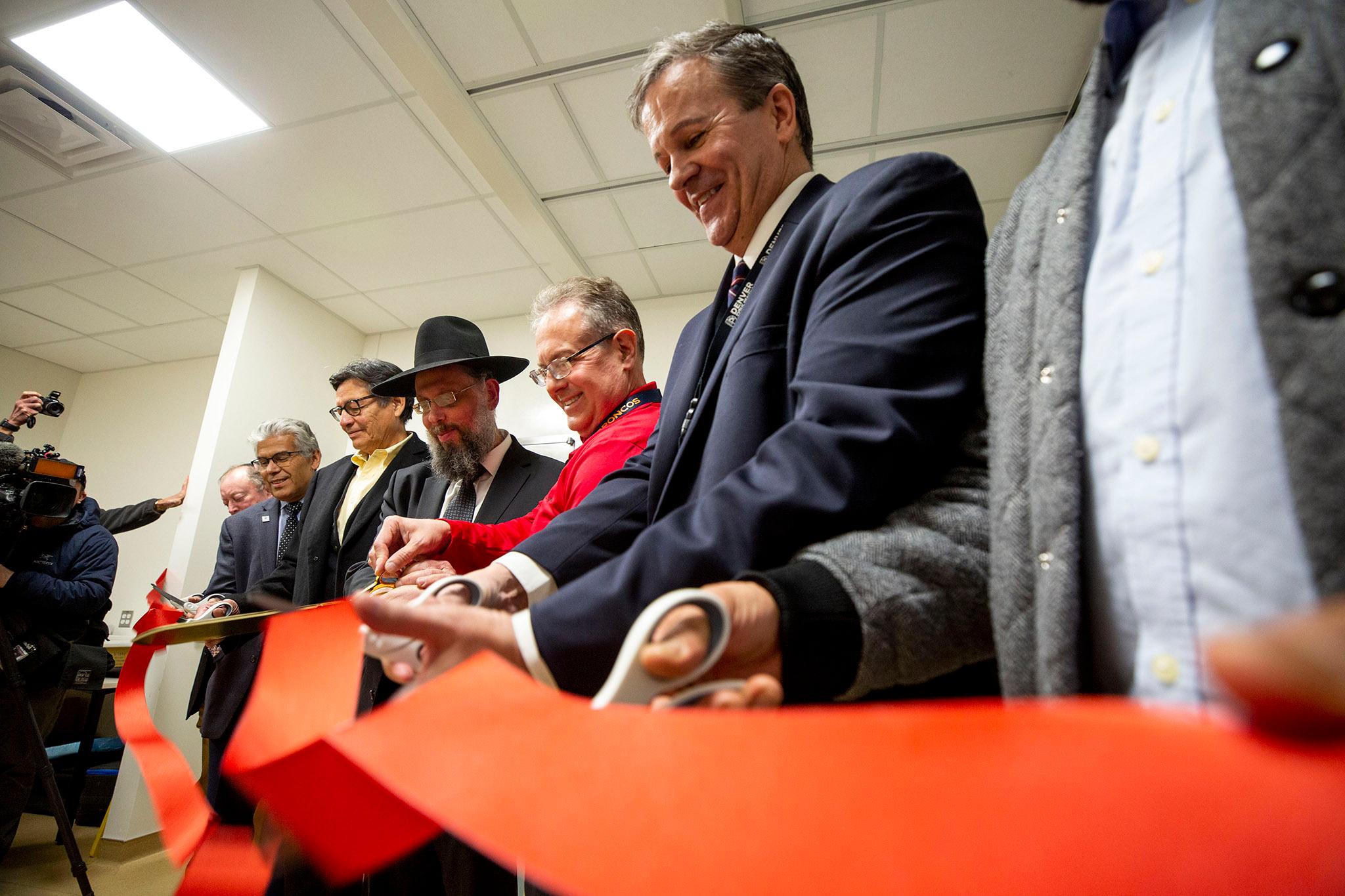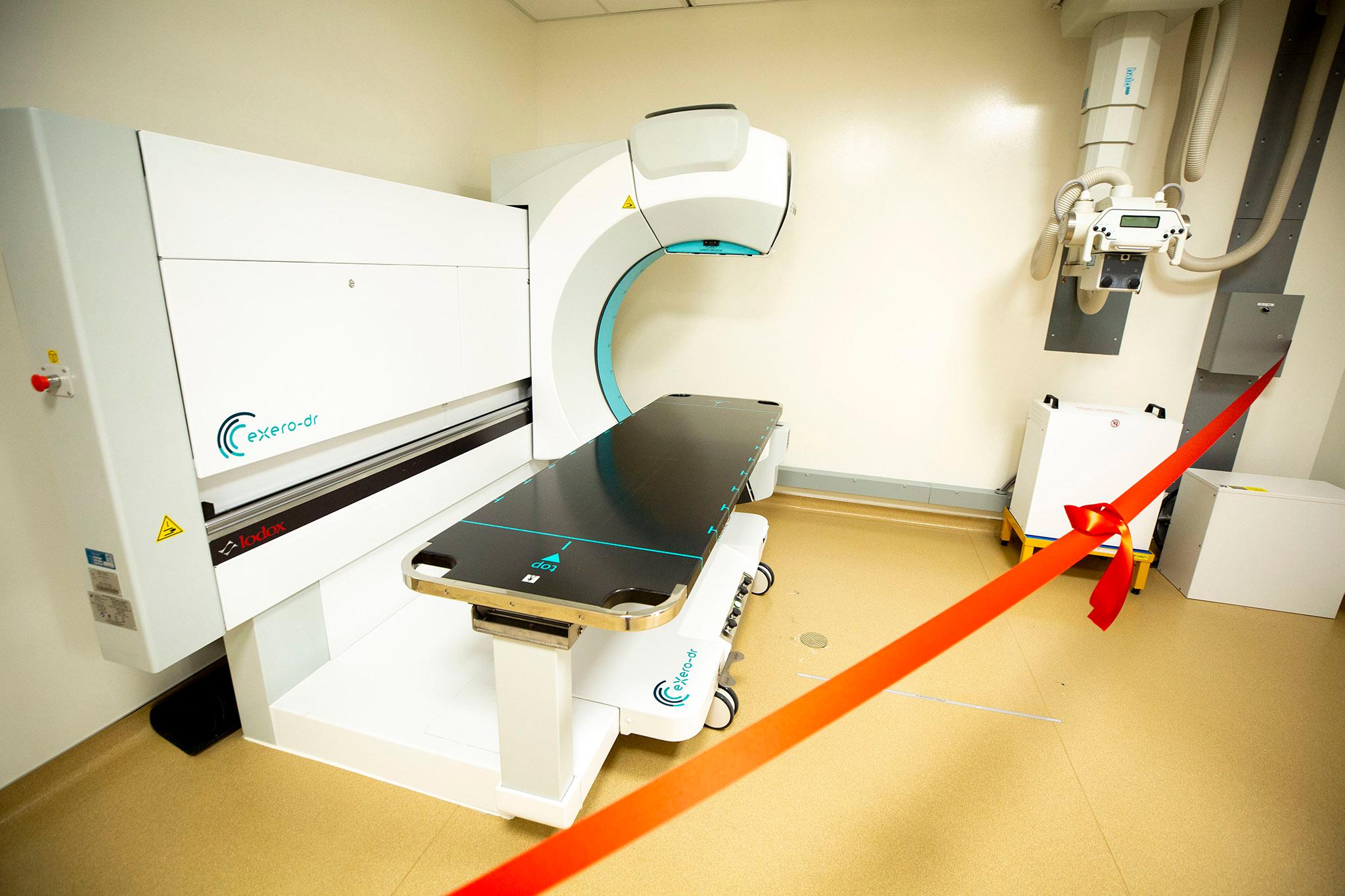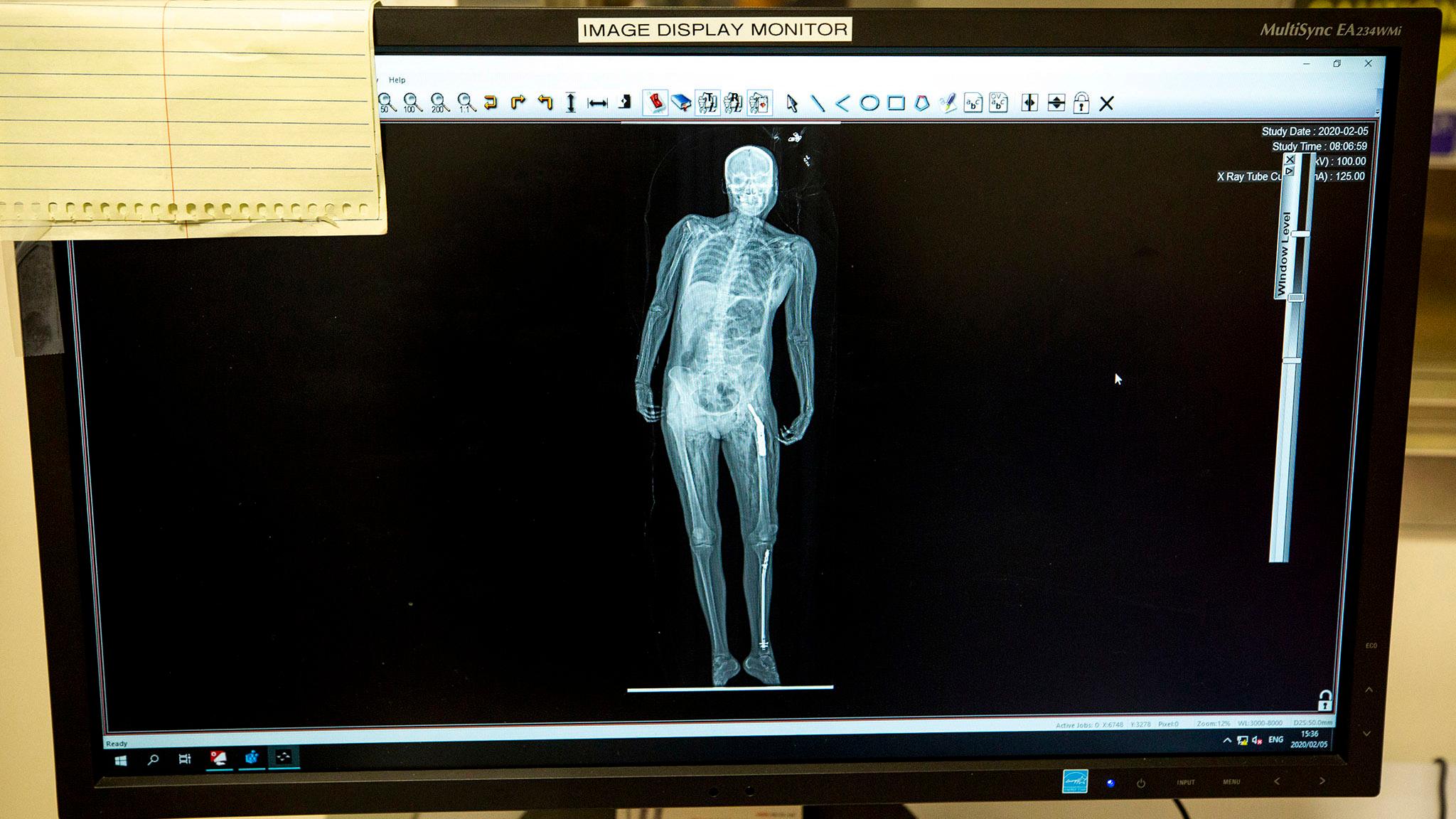The Office of the Medical Examiner on Wednesday touted a $600,000 X-ray machine as an alternative for families with religious objections to traditional autopsies.
Denver Chief Medical Examiner Dr. Jim Caruso said the Lodox body-imaging machine helps the office fulfill wishes of some faith-based communities to avoid traditional autopsies, which can be invasive and involve removing organs, by providing full-body x-rays. Coroners have been using it since October.

Caruso said the machine uses low radiation dosages. It can provide a full-body image within minutes.
"In many cases, if the family has a strong faith-based objection to an autopsy, we can reconsider doing that invasive procedure and just do an x-ray followed by an examination of the external surface of the body to make sure there isn't any trauma," Caruso said.
The office held a ceremonial ribbon-cutting inside in Baker on Wednesday with various faith leaders, including Imam Mohamed Kolila of the Downtown Denver Islamic Center, Rabbi Tzvi Steinberg of Congregation Zera Abraham and Denver Indian Center executive director Rick Waters.
Steinberg said Caruso's office has consistently been sensitive to the needs of Jewish people in Denver, some of whom have burial rituals that don't align with invasive autopsies. He is grateful, he said, and suspects other leaders are, too.
Waters started by reminding everyone they were standing on land belonging to native tribes including the Ute, the Lakota, and the Cheyenne and Arapaho who all had distinct beliefs, cultures and values. While American Indians don't necessarily share a common faith, he said, "We are a very spiritual people."

Waters said the city was "providing something that lends itself to the sensitivity of our culture, of our values, of our beliefs" around death. American Indians face a daily challenge of "invisibility," he said, but they continue to practice their values and beliefs, including those involving death.
"We look at this as a positive move and gesture of a city to work with the communities that make up this community that we live in," Waters said.
The coroner's office completes 700 autopsies every year. As Caruso explained Wednesday, his office does not autopsy everyone who dies in Denver. They investigate unexpected or suspicious deaths, those involving violence or trauma, and those caused by drug overdose.
Caruso estimated the machine will be used a few times every month for families wanting to avoid the traditional route. But the machine will also be used for traditional autopsies, he said.













